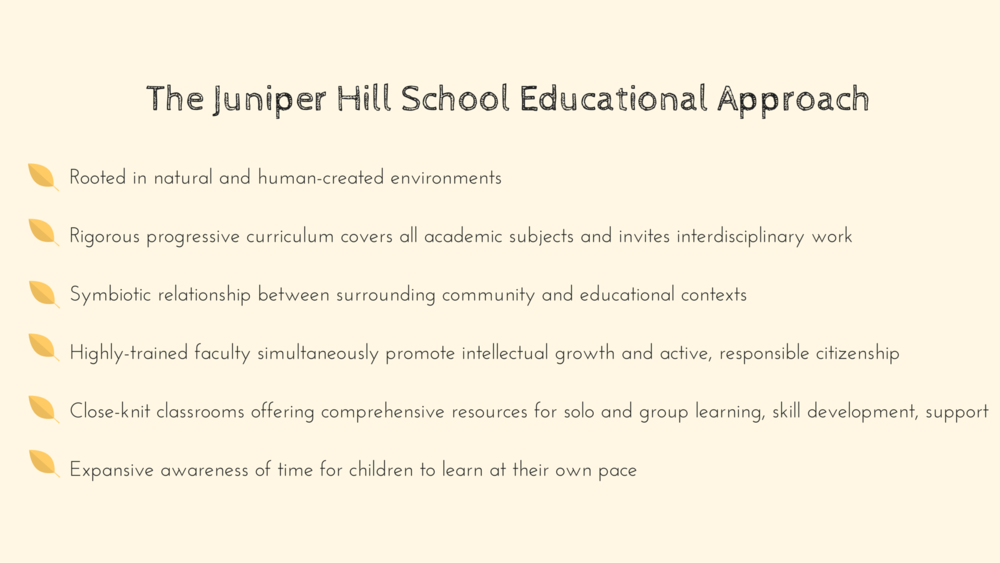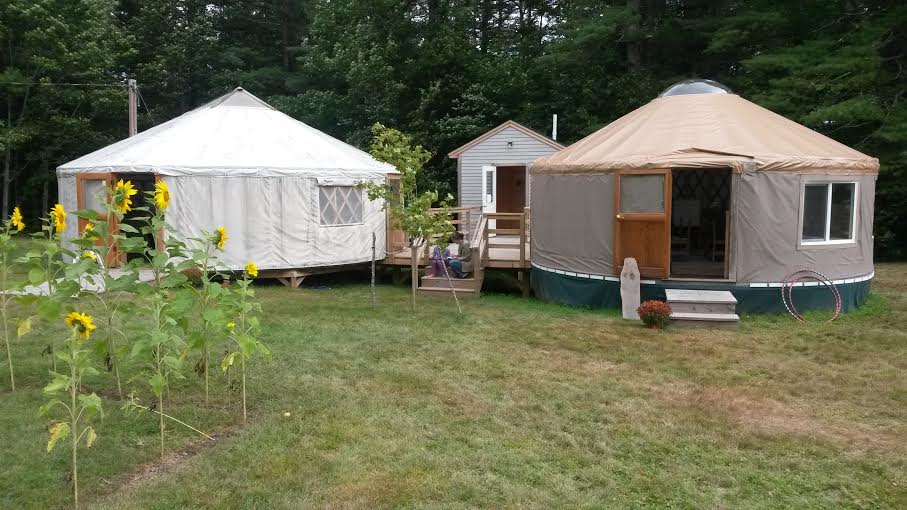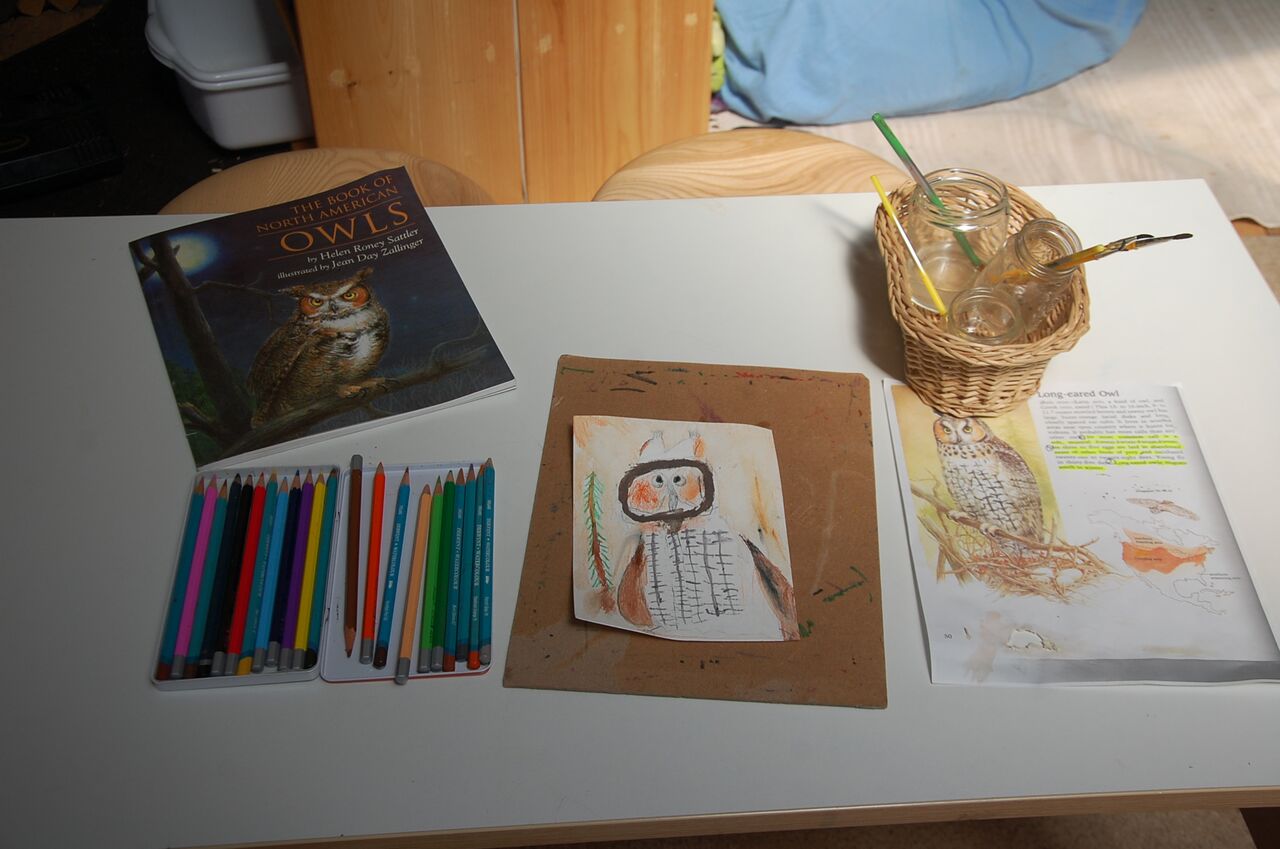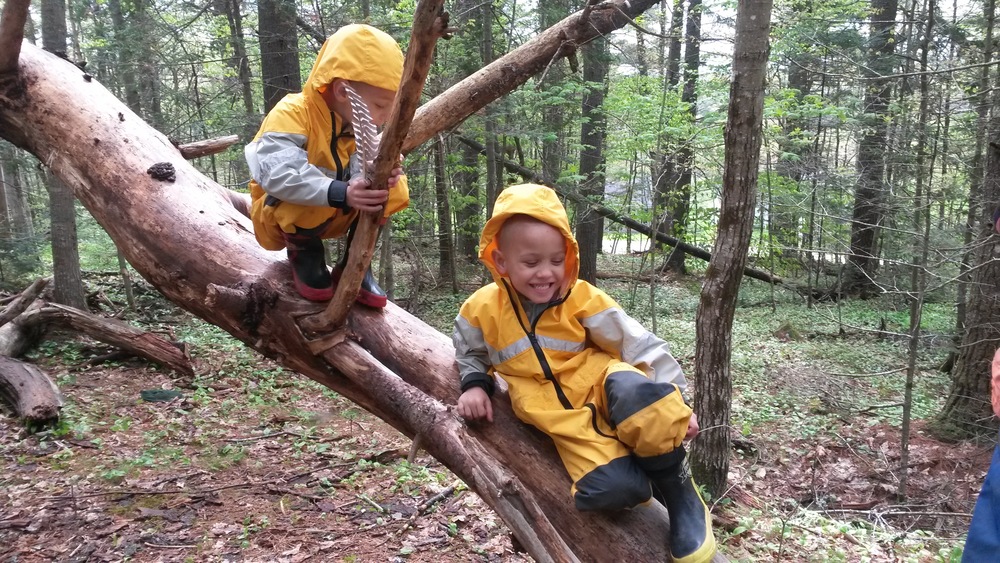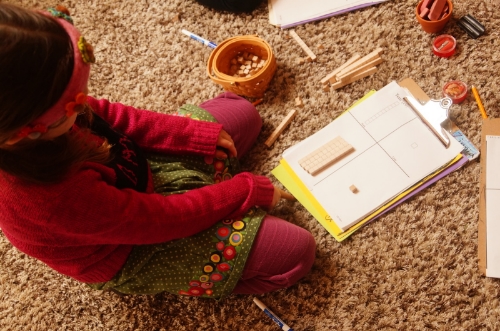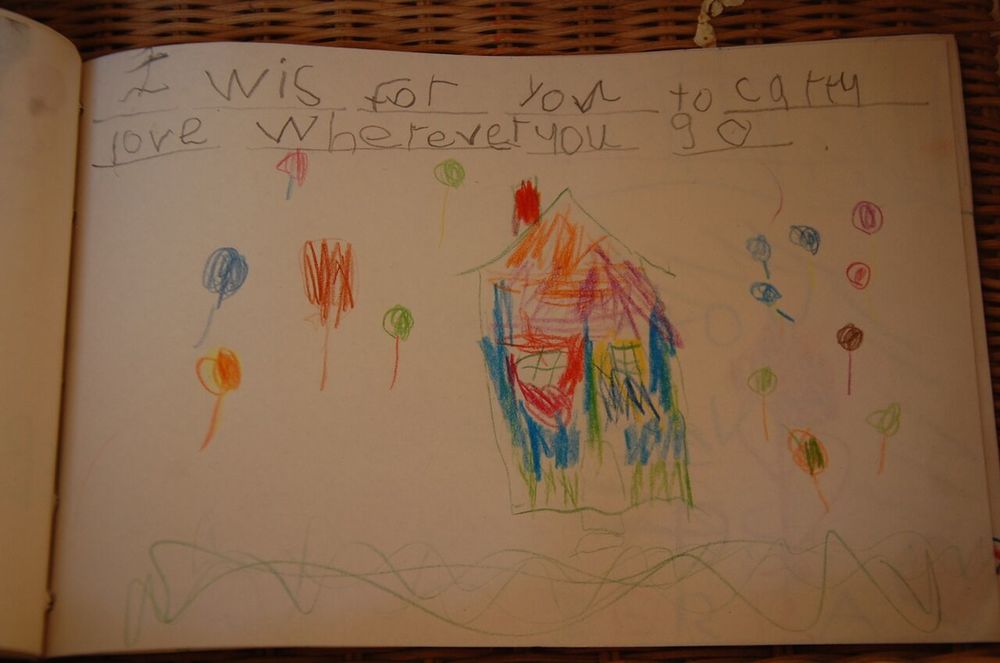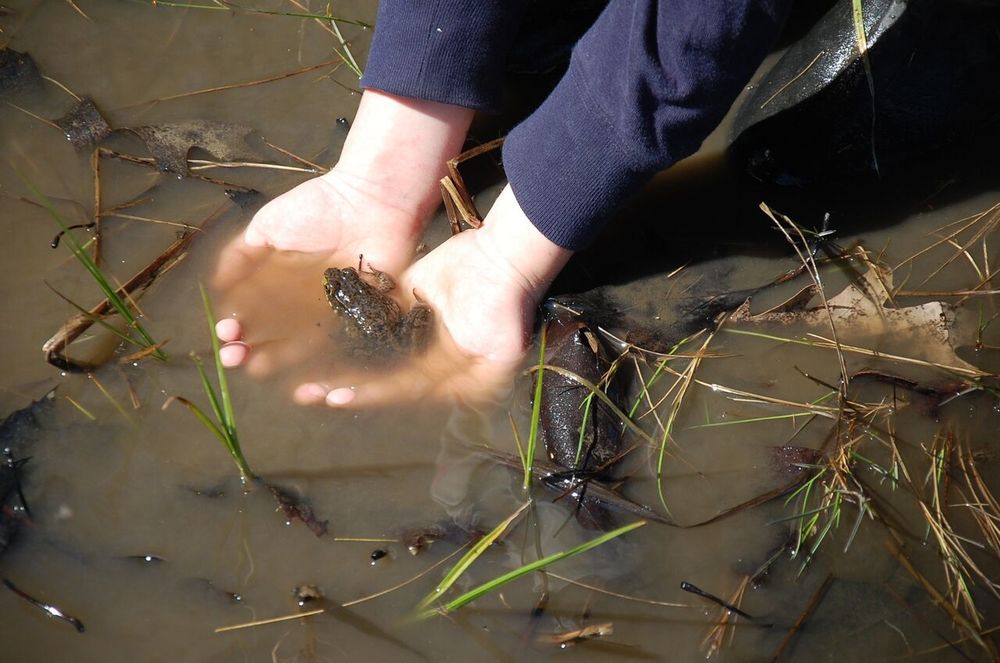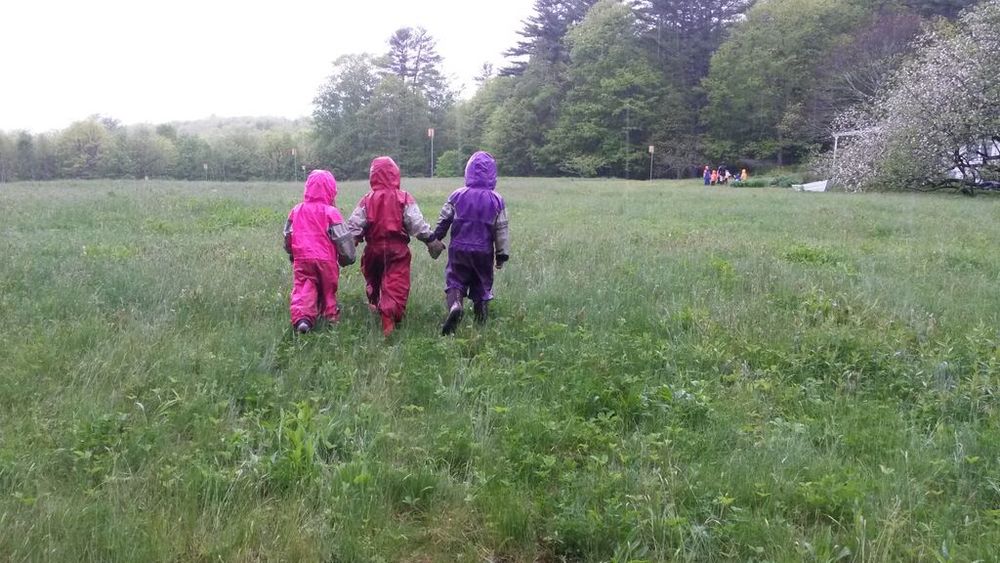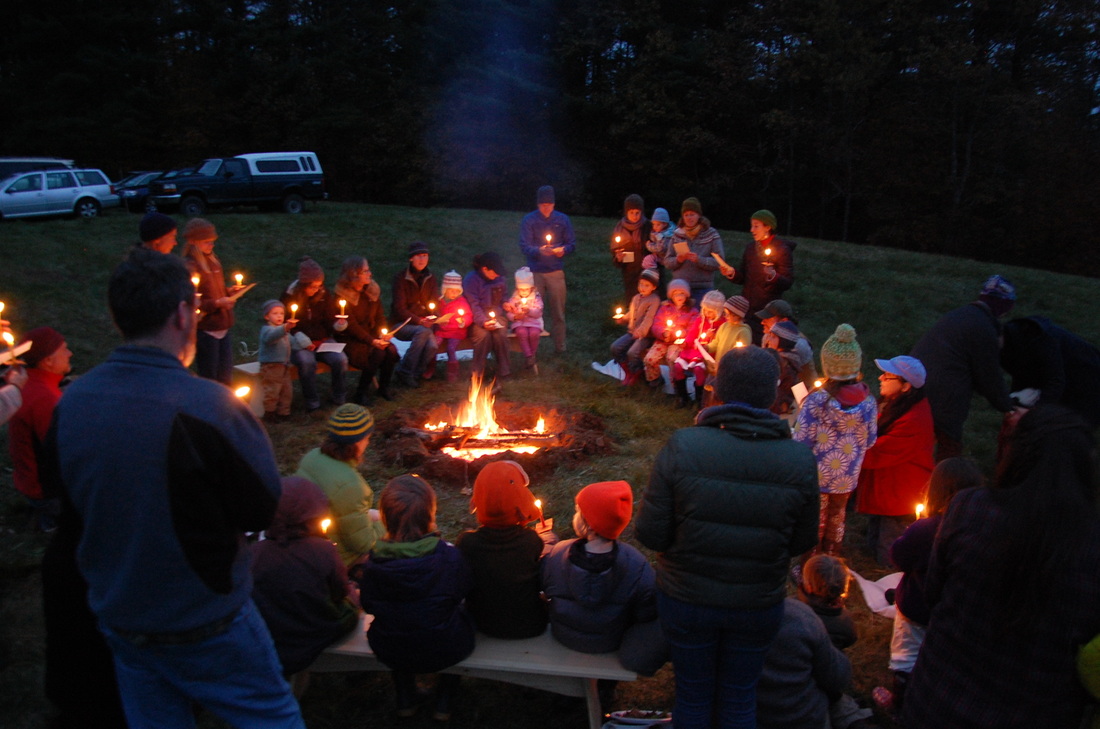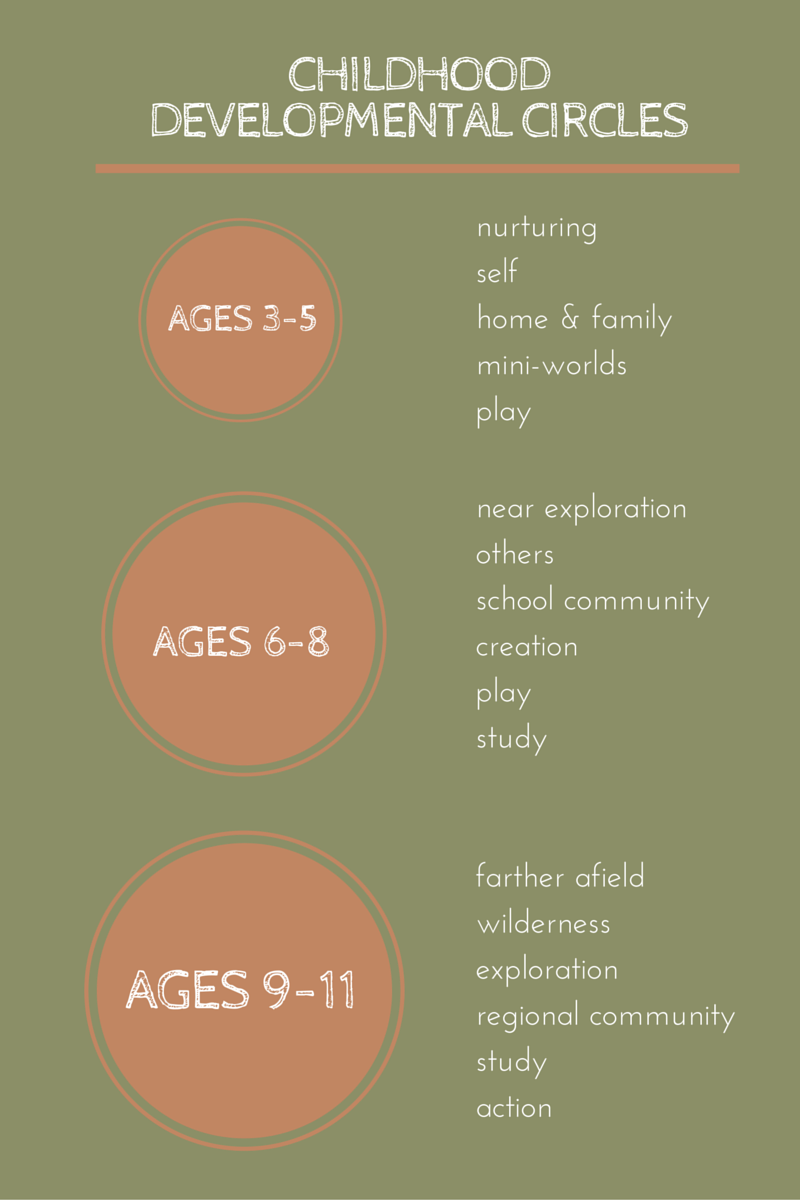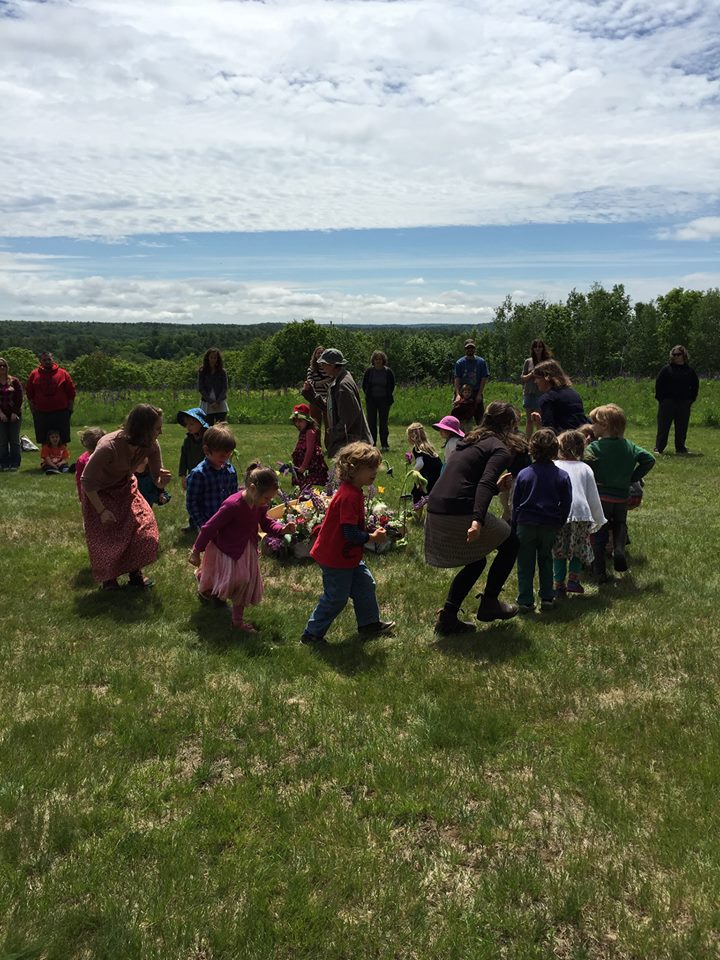COVID-19 Notice:
Due to COVID-19 and the Summer Season, we are now scheduling socially/physically distant tours by appointment only. Please contact one of our School Directors at [email protected]. Thank you.
What is Place-Based Education?
Place-Based Education is learning that is rooted in what is local – the unique history, environment, economy, literature, and art of a particular place. This is the core educational concept for teaching and learning at Juniper Hill School. According to David Sobel of Antioch University and author of Place-Based Education: Connecting Classrooms and Communities (2004), Place-Based Education “is the process of using the local community and environment as a starting point to teach concepts in reading and other language arts, mathematics, social studies, science, the arts and other subjects across the curriculum.”
Place-Based Education:
Grows from the specific natural and human-created environment students live in.
Cuts across all academic subjects and invites interdisciplinary work.
Engages students in the community and the community in the education of the students.
Promotes academic and intellectual rigor and active, responsible citizenship.
Richard Louv, author of Last Child in the Woods (2005), refers to this approach and connection to nature and community as creating “happier, healthier and smarter” children. This is our primary goal at Juniper Hill School.
Watch our video below to learn more.
A Brief History of Juniper Hill
by Anne Stires, Founder, Juniper Hill School
Juniper Hill is a place that holds deep meaning for me. This property where the school now resides originally belonged to my grandmother, Jane Keyes, whom we all called Mima. My father, Kinne, spent much of his childhood here with his two sisters, and I was raised hearing stories of my father's adventures in the 42 acres of fields, woods and marshes. He explored the surrounding wilderness even in the middle of the night under a full moon, slept under heavy blankets in his unheated bedroom of the old farmhouse even through the winter, and loved canoeing along the Sheepscot River. As I was growing up, we celebrated nearly every holiday at Juniper Hill in Mima's warm and adoring presence. My cousins, my sister and I made forts in the woods and became adept at climbing high in the apple trees--a skill our Juniper Hill students all learn to master, as well.
As an adult, I have celebrated many milestones here: my wedding, my son's birthdays and the establishment of this very special school. Like my father, I too have spent many days canoeing the Sheepscot River. Once, during my tenure teaching at a local environmental education organization, I even had the honor of releasing a rehabilitated Barred Owl into the woods with Mima by side.
Mima lovingly kept the 1762 farmhouse, outbuildings and gardens for 45 years until it was acquired by my family when Mima passed in 2003.
I founded Juniper Hill School for Place-Based Education as a place of refuge, connection, and community. The children who attend this school readily identify the landscape with exploration, adventure and growth, as well as a magical world unto itself. A four-year-old leaving Juniper Hill School after one of the first weeks of the Nature Immersion program, sighed a long sigh from the back seat of the car, and whispered to herself, “And now, we leave this world…and go back to the other one.”


